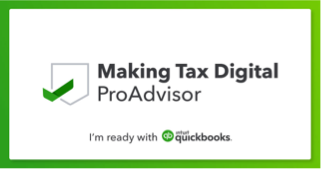Testimonials
[testimonial author]

Rated 5.0 on Quickbooks ProAdvistor

800+ Likes on Facebook

Intended to simplify the current arrangement, the Government’s planned changes include taxing unincorporated businesses on the profits made in a tax year and moving the year-end of those businesses to align with the tax year.
The change is set to happen in the 2024/25 tax year, this will be the first year we move to the ‘Tax Year Basis’
This change will only affect self-employed individuals, partners, trusts, and estates with trading income. It will not affect companies.

Before the changes were announced, basis periods were used in the early years of a new business and when a business closed. Basis periods are used to allocate profits to specific tax years, the rules surrounding them are complex and mostly handled by your accountant.
They would also have been used when a trader requested to change their year-end date.
When operating basis period rules, often profits are taxed twice, in these instances, the doubly taxed profits are known as ‘overlap profits’. A trader carries these profits forward and they provide relief when a business ceases trading or there is a change to the year-end date.
The majority of unincorporated businesses already have a year end date of 5 April or 31 March, the new rules will have no effect on these traders. For some, however, seasonality of trade or other operational issues mean their year-end is at a different time.
For the 2024/25 tax year, the profits you will be assessable on will run from your normal year start date to 5 April 2025, regardless of your usual year end date.
For the businesses the change effects, the accounting period will be more than 12 months and there will be overlap profits created. If the business has overlap profits carried forward, we can use these to reduce the assessable profits.
A business which draws up accounts to 30 June every year would normally have a tax liability for 2024/25 based on the accounting year ending 30 June 2024.
As this is the transitional year for these reforms, the actual taxable period would be 1 July 2023 to 31 March 2025, a 21-month period.
HMRC argue that such a business would have 9 months of overlap relief to use from the early periods of trading, and hence only 12 months are really being taxed in that year. However, in many cases the 9 month overlap profits for the start of a trade will likely be far less than the 9 months profits of an established business.
No, the change is not compulsory, and your business can remain trading to a different year end date.
However, this will mean added work for your account as regardless of your accounts year-end date, your self-assessment tax liability will be calculated on the assessable profits of the tax-year. This will require apportioning profits across multiple accounting periods.
Obviously, the decision will be yours and must be based on your own individual circumstances.
There is no denying this is going to have an impact, with cashflow being the hardest hit. As we know for small businesses cashflow is imperative for success. So, my advice is to start planning now for the impact on your business.
Start your cash flow forecasting
Start saving for the extra tax liability
Look at your VAT quarters and perhaps consider changing these if they will fall at the same time the tax is due.
As the saying goes “fail to prepare, prepare to fail” – planning for this change is going to be so important for you.
If you would like to discuss these changes further and how it is going to impact on you and your business, please get in touch.
[testimonial author]

Rated 5.0 on Quickbooks ProAdvistor

800+ Likes on Facebook
Get in touch and find out how we can help you
Tel. 01691 674792
Email. info@kcaccountancyservices.co.uk


